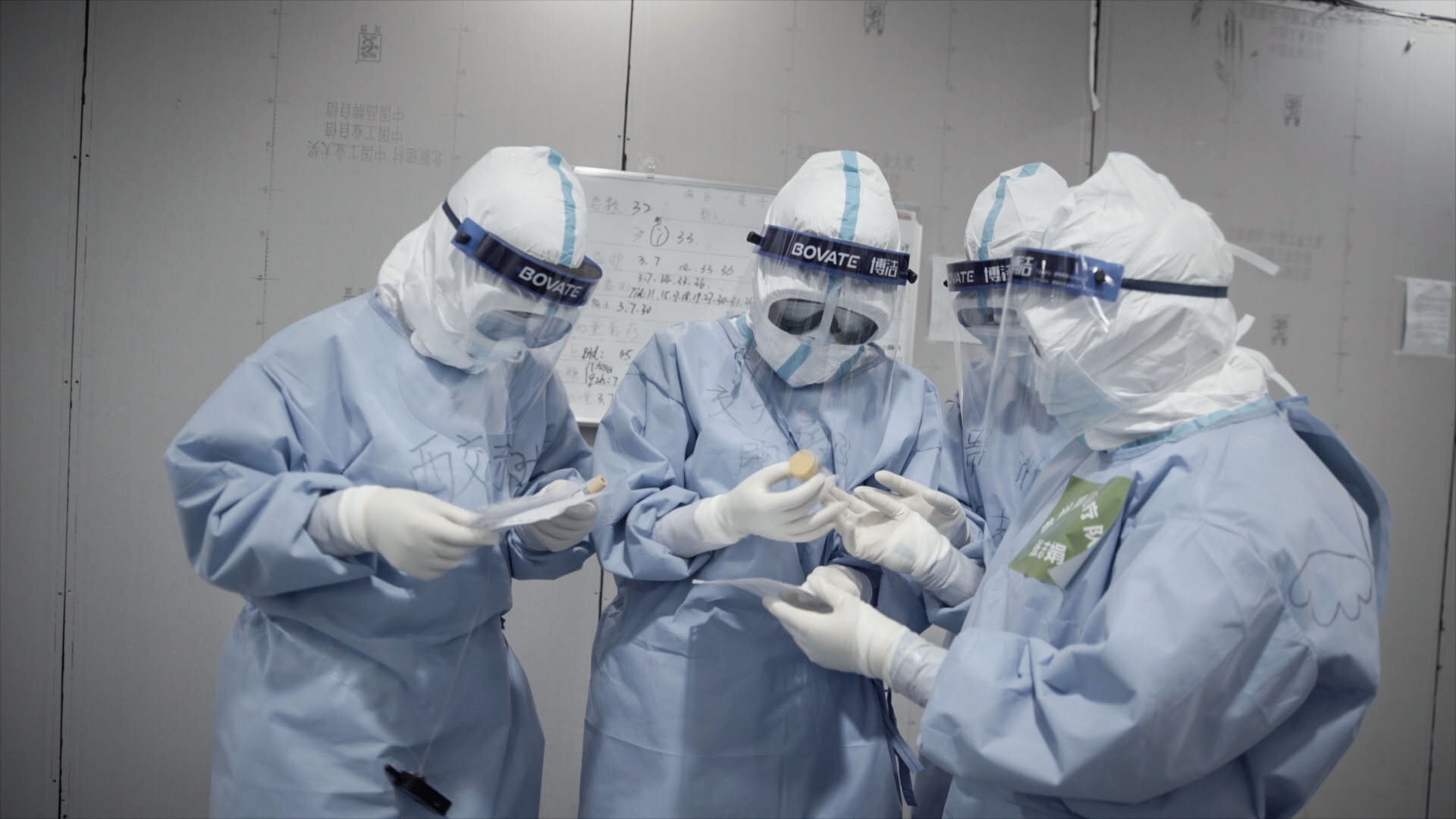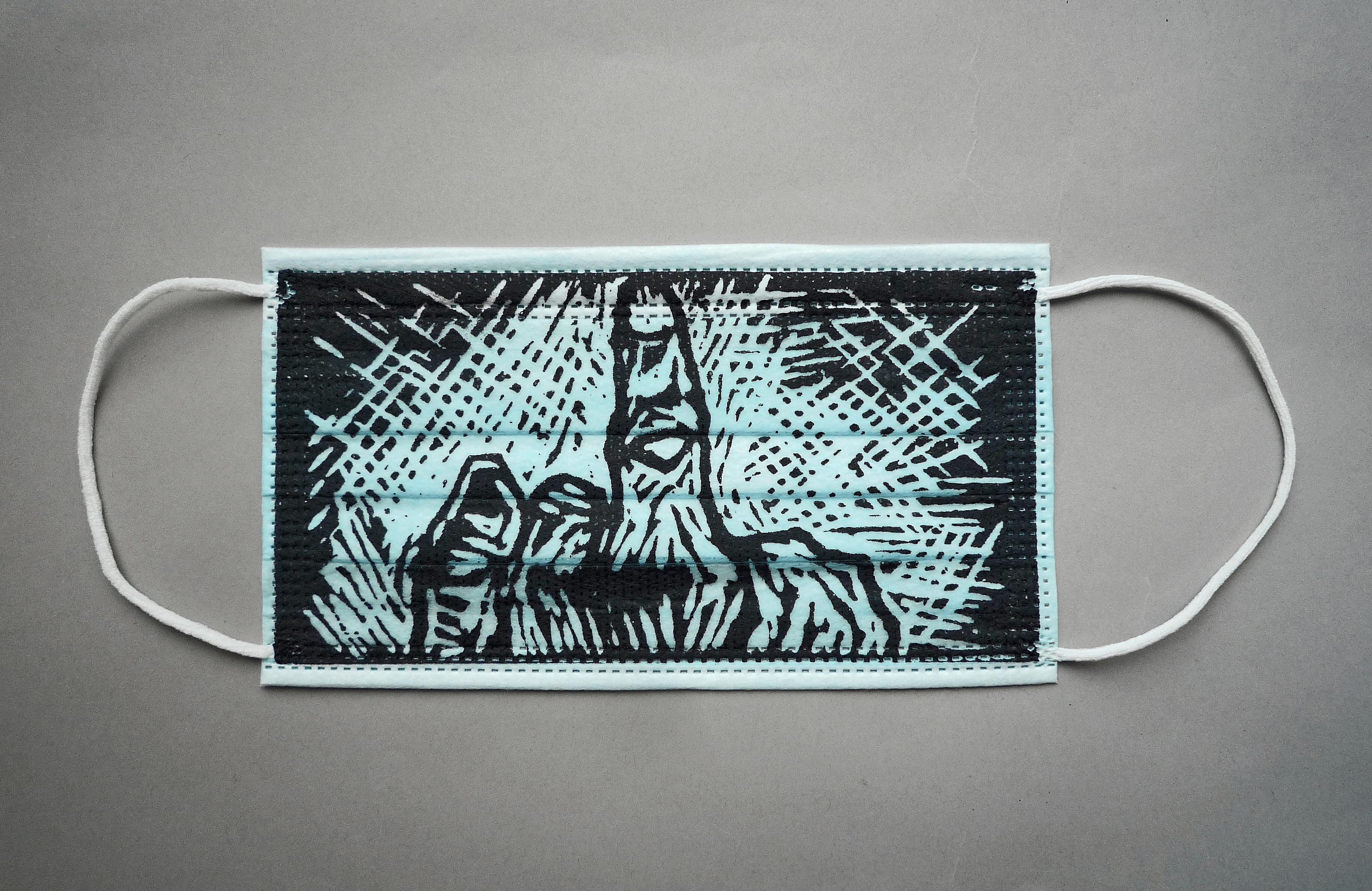Ai Weiwei: Coronavirus vs The Rest of the World
Written by Charlie Colville

As we enter the last quarter of 2020, a new platform for the creation and exhibition of digital art was launched in the heart of Piccadilly Circus. Known as CIRCA, the platform allows for artists to showcase their work and ideas in the form of a two-minute video on the Piccadilly Lights, one of London’s most famous landmarks.
CIRCA have recently launched a collaborative project titled CIRCA 2020, which sees an artist take over the Piccadilly Lights for an entire month. This month will see the artist and activist Ai Weiwei deliver a series of videos documenting his career. On each day of October at 20:20 a video produced by Ai’s studio will be shown to the public both in Piccadilly a Circus and online. The project combines video footage, photography, music, poetry, and art to present a colourful retrospective of Ai’s artistic career. Beginning with Ai’s early days in New York and culminating in his most recent projects, the series promises a deeper insight into his art, life, and relationship with the Chinese government.
At this point, Ai’s videos have caught up with the present moment, using the current worldwide predicament with Coronavirus as the focal point of his videos. Like the rest of the world, the art industry has been heavily impacted by the effects of Coronavirus and national lockdowns. However, Ai continued his practice despite the limitations to his physical movements. During lockdown, the artist worked on and produced three documentaries, using the distance to direct remotely whilst volunteers and paid crews acquired footage. In the case of ‘Coronation’, the third documentary Ai produced during lockdown, the artist chose to investigate China’s handling of the pandemic and its subsequent presentation of itself on a word stage. Having spent most of this year looking back at the country that previously imprisoned him and watched his every move, Ai makes a point in the last few videos of the CIRCA series to emphasise the impact of secrecy and pride on the wellbeing of others.
Coronavirus vs The Rest of the World
COVID-19 hit the world at an unprecedented rate. First identified in December 2019 in Wuhan, fragmented news of the virus soon turned into a Public Health Emergency of international concern in January 2020. By March, the virus was classed as a pandemic and 1.7 billion people worldwide were subject to lockdown conditions. This rose to 3.9 billion by the first week of April; impacting half of the world’s population.
Since then, more than 41.3 million cases have been confirmed, with over 1.13 million deaths worldwide. In the UK, we have experienced a national lockdown and subsequent local lockdowns in an attempt to fight the spread of the virus, but this has ultimately disrupted life as we know it and damaged our economy severely. We aren’t the only ones taking this hit either, as it was indicated by the IMF that we are currently facing the largest global recession since the Great Depression.
Other issues have become prominent in China itself, who despite hosting the initial sightings of the virus were reluctant to tell the rest of the world. Having hid cases, censored doctors, and withheld information, China actively sought to cover up the impact of the virus in terms of destruction and loss. Instead, it has been indicated that China have taken to rewriting the events which led up to and followed the outbreak of Coronavirus, emphasising acts of heroism and perseverance to promote their image in a more favourable light.
The string of events following the worldwide spread of the virus has done little to protect the image of Asian communities living internationally, however. With it seeming that everything is on a one-way track downhill, many have sought to aim their anger and frustration on Asian and Chinese communities. Xenophobia and racism have escalated since the emergence of Coronavirus, as many have labelled it a “Chinese Disease” and continue to encourage greater hostility towards those they associate with the virus’ place of origin. Consequently, there has been an increase in the number of anti-Asian hate crimes both here in the UK and elsewhere in the world.
With this in mind, CIRCA hopes to use its platform with other artists to connect people despite the distances created by Coronavirus.
On the 27th and 28th of October, Ai’s studio will be showing videos which directly respond to the Coronavirus outbreak. The first video, CORONATION, compiles footage taken from Ai’s documentary of the same name. Shot in Wuhan by volunteers and paid crews, the video provides a snapshot of the city-wide lockdown that took place earlier this year. In contrast, MASK places emphasis on the global impact of the virus through shots of iconic but now-empty cities. Like CORONATION, MASK also corresponds to an art project set up by Ai and his studio. In order to raise money for NGOs to provide emergency services related to the pandemic, face masks with screen-printed designs were created by Ai’s studio and sold on eBay.
CORONATION, as indicated, looks more closely at the handling of Coronavirus from its place of origin: Wuhan. However, the artist imbues this view with two views of the city- one which shows the perseverance of people and another which shows some of the bleaker realities.
The video opens to scenes of the city in lockdown, with empty roads and public spaces taking up the focus. However, this calm is quickly replaced by busy scenes in the city’s hospitals, with ambulances converging on A&E departments and medical staff rushing through hallways in PPE. A prominent image in this part of the video is when people are shown sanitising their whole body (while wearing PPE) before entering the building. Footage highlighting the darker events of the virus are captured through images of body bags and rows and rows of new gravestones. On this side of the video, it is underlined how the virus has greatly impacted Wuhan- both on a scale of daily life and in terms of human cost.
The other narrative present in the video is one that continues to promote China’s image. This can be seen from the technology used to help sanitise public spaces in the city, groups of people cheering in front of hospitals, individuals stood in front of the Chinese flag with their fists raised in salute, and the vibrant lights that continue to decorate the sides of Wuhan’s city buildings. While the surface impression of these images may be that Ai is presenting a city that has suffered the brunt of the virus’ impact, it can also be easy to consider that the showing of these images highlights a dual representation of the city: one from the people, and one the government. As the people of Wuhan struggled with rising cases and the first local lockdown, China’s government and press continued to present only success stories to international media- doing little to provide insight into the daily life of people in the city. As such, Ai’s emphasis on presenting two sides to the city can be read as a presentation of these two narratives: propaganda and reality.
Following this vein of interpretation, Ai’s ending statement “Without trust, people’s immune system against lies breaks down” potentially highlights the impact of the Chinese government’s lateness in acknowledging the gravity of the Coronavirus pandemic. The statement itself draws parallels between the impact of viruses and lies, with the metaphor highlighting how they can both weaken and destroy an individual. As a result, the consequences of China withholding information regarding the Coronavirus are brought to the forefront of interpretation when watching the video.

MASK continues this documentary narrative of the virus. As indicated, one of the main focuses in the video is the global impact of Coronavirus, which Ai visualises through footage of famous cities in lockdown. From the empty canals of Venice, abandoned tourist destinations in Paris, to the deserted subways of New York, MASK moves on from its predecessor by depicting areas that now face some of the highest numbers of cases globally.
These scenes then fade into the second focus of the video: the masks made by Ai’s studio. The masks, sold on eBay to support the emergency coronavirus responses of Human Rights Watch, Refugees International, and Doctors Without Borders, raised $1.4 million USD. With Ai’s choice to merge the footage of the empty cities with this process of making, the artist brings together project and cause in the same space; the iconic symbol of Ai’s middle finger at this point solidifying the role he has to play in this narrative.
This idea is developed by the images of these masks hung and lined up on a rail to dry as a faded image of the New York subway plays in the background. The shifting movement of the masks is reminiscent of the swaying of handrails on the subway as it takes people from station to station, emphasising the human presence behind both of these images despite their current empty state. While people aren’t in these public spaces, there is a unified sense of human connection and the indication that people are working towards filling these spaces again. The purpose of creating these masks is reiterated here: to help bring people together and overcome current hardships.
The ending quote by Albert Camus, “Freedom is nothing but a chance to be better”, highlights this. People were in lockdown, but they still had the freedom to help and use any opportunity to better people’s experiences of the pandemic.
With CIRCA now having caught up to Ai’s most recent projects, it can be said how the artist has kept up a continuous involvement in the documentation of current events and the issues that plague them. Engaging with the world he lives in throughout his career, Ai continues to make every effort to establish his brand of art as one that examines, interrogates, and documents the present time.
Watching the videos that have made up the CIRCA x Ai Weiwei collaboration, I have felt how the project has given viewers the opportunity to get to know the artists that are defining our time. By using a public space like Piccadilly Circus to present each video, CIRCA have sought to engage the general public with the art world in a way that confronts and invites discussion. From themes of corruption and power, and social issues such as the Refugee Crisis, to the current predicament we face with Coronavirus, CIRCA and Ai illustrate how the work of artists continues to be valuable in connecting people to the wider world.
With this in mind, I look forward to CIRCA’s next steps in their journey to democratising and uniting a global community of creatives.
Charlie Colville is the current Arts Editor for Mouthing Off magazine, an online platform designed to give young people the opportunity to find a new voice – a guttural scream loud enough to arouse fresh ideas, creative thought, and inspire artistic flair.